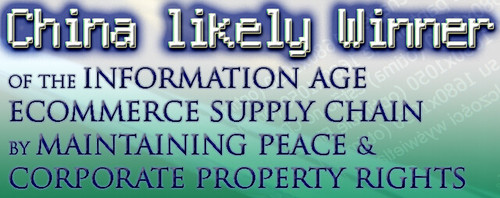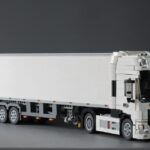The cost of US tariffs continues to weigh on the first quarter results, and several major corporations have lowered their guidance.
Snack makers, airlines, telecom companies, even snack manufacturers, are raising their prices and reducing financial projections as a result of tariffs implemented under Trump’s new trade policy.
While most tariffs are paused, a blanket 10% rate remains on imports, along with heavy duties on autos, steel and aluminium.
Beijing has responded in kind to the sweeping tariffs, especially those that target Chinese products, causing further disruptions for American companies with global supply chains.
PepsiCo warns that core earnings per share will drop by 3% for the entire year
PepsiCo warned that its core earnings per shares for the entire year would drop by 3%, reversing expectations.
Ramon Laguarta, the chief executive of the company, blamed this shift on the rising costs in the supply chain due to the tariffs. This includes the 10% tax on imported soda concentrate from Ireland.
This is on top of the 25% import duty on aluminum imposed by March that affected packaging costs.
Laguarta added that the consumer sentiment in major markets remains subdued.
PepsiCo expects earnings to remain flat on a constant-currency basis despite efforts made to reduce supply chain costs.
Nokia is expecting to see its operating profit drop by up to EUR30m in the second quarter
Nokia, a Finnish provider of telecom equipment, expects to take a hit in its operating profits between EUR20 and EUR30 millions due to trade tariffs.
Justin Hotard, President and CEO of the company, said that the company was looking to increase its US manufacturing footprint and to strengthen relationships with hyperscale cloud service providers in order to counteract the effects.
Nokia is still struggling to achieve its higher-end profit forecast.
Analysts’ earnings estimates for this quarter could be reduced by up to 7.6%.
In the face of economic uncertainty, airlines withdraw their forecasts
Travel is another sector that has been affected by tariffs. Major US airlines are reducing their long-term predictions.
American Airlines retracted its outlook for 2025, citing softening discretionary spending as well as volatile government policies.
Southwest Airlines also lowered its projections for 2025 and 2020 due to the uncertainty caused by tariffs.
Air travel is seen by many as an unnecessary expense. Economic pressures, therefore, have resulted in fewer bookings and a less predictable demand.
Customers are cutting back on their spending, and airlines that had been thriving just two months earlier due to strong demand now face a downturn.
Chipotle is warning of a weaker market and increasing input costs
Chipotle Mexican Grill, the fast-casual restaurant chain, also reported a decline in customer visits. The main reason given was economic worries.
Scott Boatwright, Chief Executive Officer of the company, pointed out that a change in consumer behavior began in February and continued into April.
He told analysts that consumers are reducing their frequency of dining out because they want to save money.
Tariffs imposed on Mexican agricultural products could also have a negative impact on the company’s margins. Around half of their avocados are sourced from Mexico.
The previous round of tariffs was predicted to increase Chipotle’s cost of sale by 60 basis points.
Unilever faces limited tariff impact but raises concerns about broader uncertainty
Unilever, a major consumer goods company, offered a more moderate outlook.
The company reported better than expected first quarter sales. It said that its supply chain, which is largely local, has helped to limit the direct effect of tariffs. It acknowledged, however, that the market was volatile.
According to Chief Executive Fernando Fernandez, “given our investment in America and the majority of our supply chains are local, at this point, we expect that impact will be limited.”
He cited currency instabilities and uncertain consumer sentiments as two challenges that require flexible planning.
Unilever, Nestle and other companies have not raised their prices in the US to compete with cheaper products from private label brands. However, EssilorLuxottica or LG Electronics are either considering raising prices now or already have.
The ICD published this post: From PepsiCo and American Airlines, Trump’s tariffs are affecting earnings as companies prepare for further pain.
This site is for entertainment only. Click here to read more



